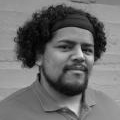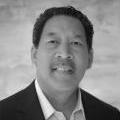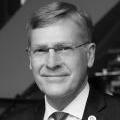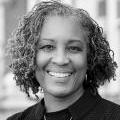Other Candidates
There are a few other prominent candidates in the Seattle mayor's race. Read below for more details on these candidates.
Deputy Mayor Casey Sixkiller was appointed to this role by Mayor Durkan in 2020. He was previously the chief operating officer of King County. Sixkiller has drawn some criticism for his backing of Mayor Durkan's reluctance to open safer shelters for the homeless during the pandemic, as well as his lobbying with the oil industry.
As an enrolled citizen of the Cherokee Nation, Sixkiller has reached the highest-ranked political office that an Indigenous person has ever reached in the City of Seattle.
Lance Randall is a prominent political strategist and the interim director of SEED Seattle (SouthEast Effective Development), an organization that builds partnerships and markets investments into affordable housing and arts projects throughout the area. Randall previously spent 8 years serving as the Business Relations Manager for Seattle’s Office of Economic Development. He is running with a focus on the economy which informs his platform that includes mitigating climate change, police reform, and public safety, investing in arts and culture, addressing housing and homelessness, and post-pandemic economic recovery.
With these progressive issues in mind, Randall hopes to both revitalize Seattle and act on urgent reform efforts to better the quality of life for all city residents. Among other specific ideas, he proposes utilizing federal funds to build housing options for those facing homelessness, implementing greater accountability measures for the Seattle Police Department, creating a local grant program for small businesses recovering from the pandemic, and acting to make municipal broadband available in Seattle. Drawing on his background in policy spaces and economic expertise, Randall is pushing a relatively progressive platform in this race.
A self-described centrist, Art Langlie is running for mayor as a political outsider who works in the private sector as the executive vice president of Holmes Electric. Langlie’s campaign is built on a critique of how Seattle municipal politics have worked so far. He believes that his lack of direct elected experience allows him to better address the issues that the city faces. Langlie identifies homelessness and public safety as his campaign priorities. Despite substantial public support for serious police reform, Langlie only offers vague ideas for holding the Seattle Police Department accountable and has brushed off the defund movement as a “soundbite.” Langlie is not a progressive candidate and has not demonstrated experience that would make him an effective leader.
There are a few other prominent candidates in the Seattle mayor's race. Read below for more details on these candidates.
Deputy Mayor Casey Sixkiller was appointed to this role by Mayor Durkan in 2020. He was previously the chief operating officer of King County. Sixkiller has drawn some criticism for his backing of Mayor Durkan's reluctance to open safer shelters for the homeless during the pandemic, as well as his lobbying with the oil industry.
As an enrolled citizen of the Cherokee Nation, Sixkiller has reached the highest-ranked political office that an Indigenous person has ever reached in the City of Seattle.
Lance Randall is a prominent political strategist and the interim director of SEED Seattle (SouthEast Effective Development), an organization that builds partnerships and markets investments into affordable housing and arts projects throughout the area. Randall previously spent 8 years serving as the Business Relations Manager for Seattle’s Office of Economic Development. He is running with a focus on the economy which informs his platform that includes mitigating climate change, police reform, and public safety, investing in arts and culture, addressing housing and homelessness, and post-pandemic economic recovery.
With these progressive issues in mind, Randall hopes to both revitalize Seattle and act on urgent reform efforts to better the quality of life for all city residents. Among other specific ideas, he proposes utilizing federal funds to build housing options for those facing homelessness, implementing greater accountability measures for the Seattle Police Department, creating a local grant program for small businesses recovering from the pandemic, and acting to make municipal broadband available in Seattle. Drawing on his background in policy spaces and economic expertise, Randall is pushing a relatively progressive platform in this race.
A self-described centrist, Art Langlie is running for mayor as a political outsider who works in the private sector as the executive vice president of Holmes Electric. Langlie’s campaign is built on a critique of how Seattle municipal politics have worked so far. He believes that his lack of direct elected experience allows him to better address the issues that the city faces. Langlie identifies homelessness and public safety as his campaign priorities. Despite substantial public support for serious police reform, Langlie only offers vague ideas for holding the Seattle Police Department accountable and has brushed off the defund movement as a “soundbite.” Langlie is not a progressive candidate and has not demonstrated experience that would make him an effective leader.












